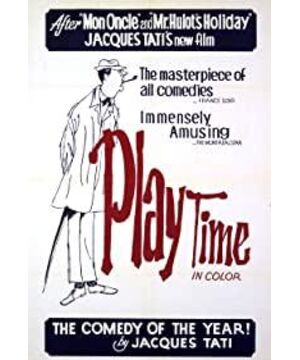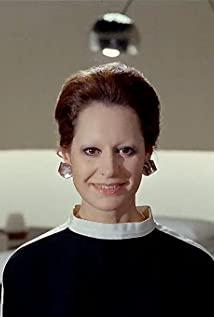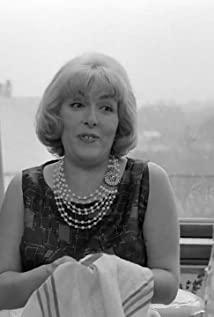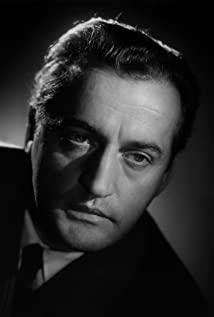Let’s talk about the details I saw. I didn’t understand the first part of the movie, but I saw some interesting things. One is that the nun’s strange hat trembles with the pace, and the other is that two doctor-like men are Tailored into a stepped back hem. My understanding of these two details is that it reflects the enthusiasm of people for the design of the World Expo in France at that time. I don't know if I can explain it like this. At the end of the film, the round garden turntable in the middle of the road seems to have been deliberately planted a black and white spiral pillar in the middle of the flower bed, like a merry-go-round in amusement park. Cars followed one by one and sounded at the same time. The music in the amusement park echoes the name of the movie-play time. People are in all kinds of morbid carnivals and optimism, and they have completely failed to realize the
abnormal changes brought to us by this era. Mies van der Rohe predicted the charm of the future glass building when he built the glass skyscraper. It lies in its transparency and in their reflectivity. Reflection is used in many places in this movie. The most obvious is that when Babara opened a glass door to enter the building, she saw the Eiffel Tower reflected on the glass door, so she stopped and opened and closed the door twice. I didn't notice the other two places at all when I looked at them. The teacher said that he thinks they must still be there, so I found them carefully. One place reflects the Arc de Triomphe, the other reflects the Sacred Heart Church.
Modernist architecture is to use this to clarify its meaning. It seems that Mies said that glass architecture reflects other buildings in the city on itself, so it is in harmony with the environment. However, is this harmony really as real as the architect said? We saw the protagonist Hulot bumping into each other in the geometric maze of modernism; seeing the most efficient "modern man" Gifferd hit his nose by the glass door to find Hulot; we saw living in a glass apartment Of people are "exhibited", which is a great irony of privacy. What exactly do standardization and efficiency aesthetics bring us? Do we want to walk to the same building everywhere, such as a car factory-like parking lot, the same outfit and the same briefcase?
Criticizing modernism was not enough, and the film went on to make a more ruthless satire on postmodernism. Abandoning standardization, pursuing individualization and innovation, as well as consumer frenzy, it seems that people have obtained richer materials and more time and more innovative ideas than in the modernist era. In fact, innovation has failed in this era, and mankind does not need those dispensable innovations at all. But people don't know this, they are ecstatic about all this, and their heads are hot, so they consume even more crazily. If the time anxiety of modernism is how to improve production efficiency and create more wealth and leisure time, then the time anxiety of postmodernism is how to sell to achieve profit. The essence of capitalism determines that people will not be more leisurely after increasing productivity, and capitalists will inevitably squeeze that extra time to produce more value. Consumption cannot keep up with production, so the product is surplus. What postmodernism faces is how to promote people's irrational consumption. "This anxiety (post-modern time anxiety) is not more noble than the modernist anxiety about efficiency, and even more distant from Russell’s leisure time about civilization, but it is equally urgent, because once capital has survived because of profits, it needs Uninterrupted consumption and support are no less important than humans’ need for digestible nutrition.”
Democracy was then promoted to an unprecedented height, because capitalism wanted to disintegrate the family and differentiate it from the family that was originally a consumer as a whole. Multiple consumers. Later, the space was also divided (TVs were installed in the toilets).
The craziest and most metaphorical and symbolic thing in the whole movie is the plot in the restaurant. We seem to have completely entered Roland Barthes' "symbol empire". The neon sign like the dollar sign on the entrance of the hotel, the symbol that can be seen everywhere in the hotel-"crown", the waiter formed a pornographic metaphor of watering flowers when pouring the group of American female tourists (they are covered with flowers on their heads, this me I didn't see it, the teacher said),...The symbol is burned on everyone. When we see people getting up to dance, the crown shape on the back of the chair is printed on the back.
People have changed from modernist functional consumption to post-modernist symbolic consumption. Luxury goods, sky-high gift box mooncakes (the fish that was sprinkled countless times and served two batches of customers in the movie) are all symbolic consumption. Confirmed.
There are two metaphors in the movie that I haven't seen. One is that a man in the restaurant picked the apples for decoration in the restaurant for a woman and tore the ceiling down. The metaphor was probably Adam picking the forbidden fruit. But this time Tianqian didn't work at all, people just frightened and continued to revel without scruples. The second metaphor is perhaps the most important one. It was the drunk alcoholic. He couldn't see all the symbols. He broke through the illusion. He looked confused, but he was the most sober. This person completed the film's reflection on consumption time.
The most interesting thing about this movie is that you don't know where you will see a very interesting detail. It seems that there are special intentions of the director.
The deepest experience is the modern consumption craziness. The Chinese have made many incredible things, such as Golden Week. Producers happily become consumers at this time. I doubt whether this can be called leisure. There is also the commercialization of Chinese contemporary art. Everything that can bring dollars has been symbolized and copied on a large scale, trying to get some fractions from it. I have become less optimistic about whether there is art in contemporary China. Of course, this is a digression and I won’t say much.
I remembered a sentence that Socrates said: "I wandered all over the Athens market, but found that I didn't need anything."
View more about Playtime reviews










